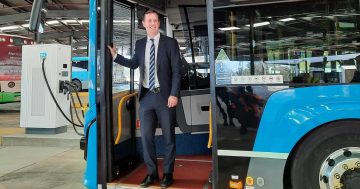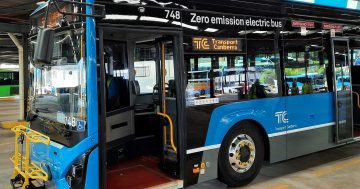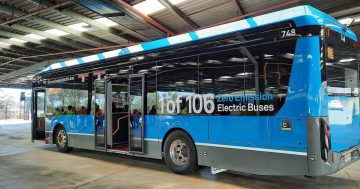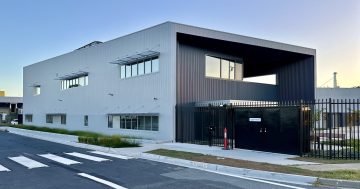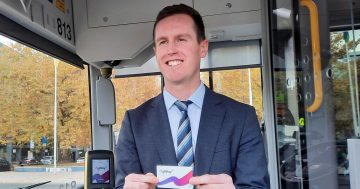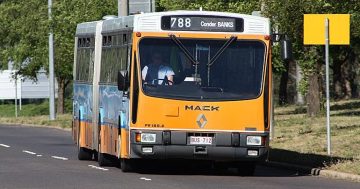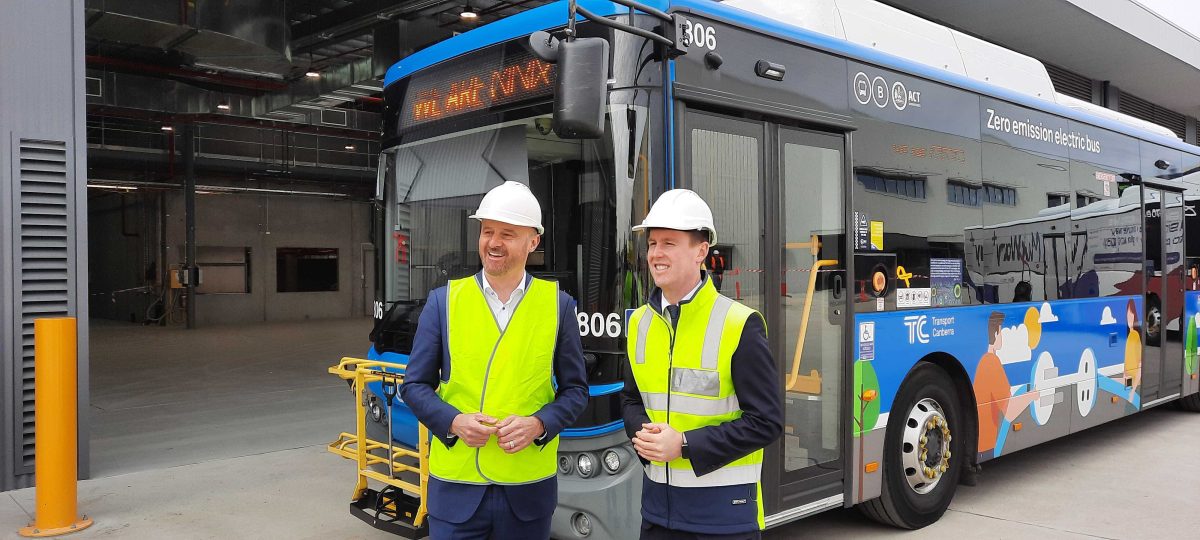
Chief Minister Andrew Barr and Transport Minister Chris Steel at the new Woden Bus Depot to announce Labor’s public transport policy. Photos: Ian Bushnell.
A re-elected Labor Government will double the size of the electric bus fleet, introduce three new Rapid routes and run services every 20 minutes on weekdays.
Chief Minister Andrew Barr and Transport Minister Chris Steel announced the party’s $80 million public transport policy at the new Woden electric bus depot, which will be the largest of its kind in Australia and New Zealand when it comes online at the start of next year.
The policy, of course, also includes light rail Stages 2A and 2B to Woden, and Mr Barr said the choice at the October election need not be one of either light rail or buses.
“We need both and the only party in this campaign coming forward with a comprehensive public transport and transport policy is Labor,” he said.
“We’re going to invest in light rail and electrifying and expanding the bus fleet and the infrastructure to support the charging and recharging of those buses and to improve the operation of the network.”
Mr Steel said Labor would buy an extra 110 electric buses over the next four years, in addition to the 106 vehicles it had already either leased or bought, most of which are being delivered in stages over the next couple of years.
He said this was more than any other party had promised. The Canberra Liberals also plan to expand the fleet in its bus-only policy, saying 500 new electric buses will be needed over the next decade but did not nominate a figure for the next four years.
Mr Steel said there were about 23 running across Canberra without issue and that number would double by the start of next year.
When the 110 buses were delivered, a third of the bus fleet would be electric.
Mr Steel those buses could be acquired in a number of ways – exercising an option on the current Yutong contract, another tender to explore other suppliers or by tapping into Transport for NSW’s panel of suppliers.
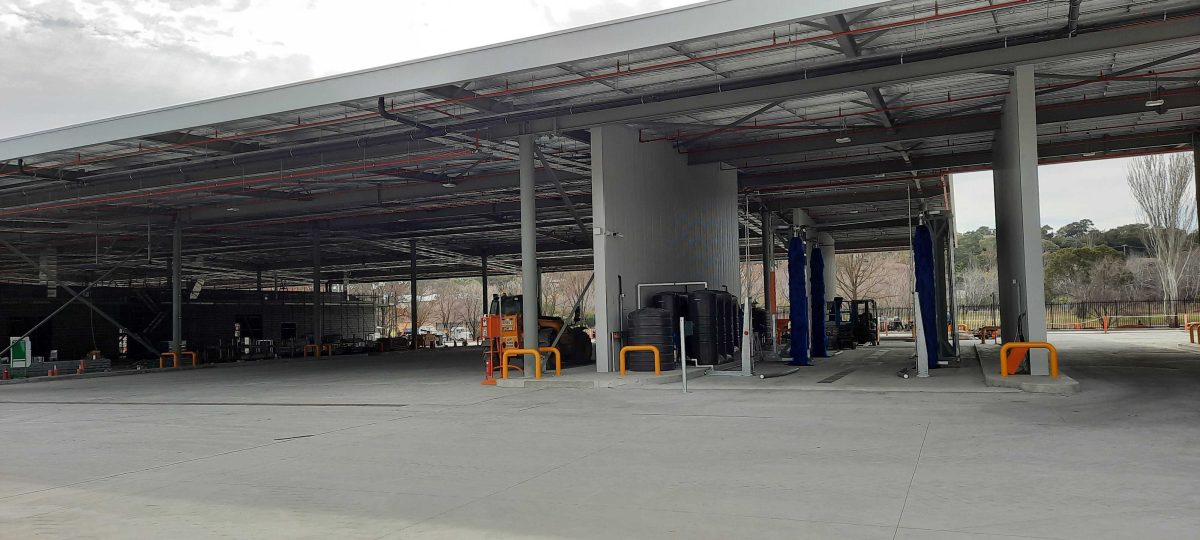
A section of the new Woden Bus Depot which will stable and charge up to 100 electric buses.
He said the new Woden depot would have the capacity to charge 100 buses, while the Tuggeranong depot would be progressively upgraded so it could charge 200 buses.
Labor would also plan and design a fourth bus depot on the northside to support the growth of the electric bus fleet and continue to collaborate with the energy sector to upgrade the grid.
More buses will mean more drivers, and Labor plans to hire 350 more drivers.
Mr Steel said previous recruitment had been quite successful, and the government was confident it could reach that target to cover driver losses and grow the workforce overall to deliver the expanded services Labor was promising.
The three new Rapid services are for Tuggeranong residents between Lanyon and the City to replace the existing peak service, growing West Belconnen from Ginninderry to the City, replacing a small bus service from Ginninderry to Kippax, and for the Molonglo Town Centre after completion of the Molonglo River Bridge at the end of 2025.
By the end of the next term of government, ACT Labor says it will increase service frequency to 20 minutes on weekdays for all local routes and, from next year, boost frequency on Sundays from every two hours to hourly services.
Rapids already run every 30 minutes across the weekend; local services are hourly on Saturdays during the day.
The weekend commitment falls short of both the Greens and the Liberals’ pledge of local services running every 30 minutes, which the Public Transport Association also supports.
But Mr Steel said he wanted to be able to promise what was achievable under the current drivers’ agreement.
Labour will also recruit a dedicated team of transport officers with additional powers to patrol buses and interchanges to make travelling safer for passengers and drivers, as well as make it easier for people with a disability to use the service.
Other initiatives on the table include building bus priority measures for the Belconnen to City Transitway following work on the updated feasibility study, upgraded bus stops and park and ride facilities, better connections to the future Bruce Health, Education and Sport precinct and improving traffic flow on the Cotter Road from Streeton Drive to the Tuggeranong Parkway.












